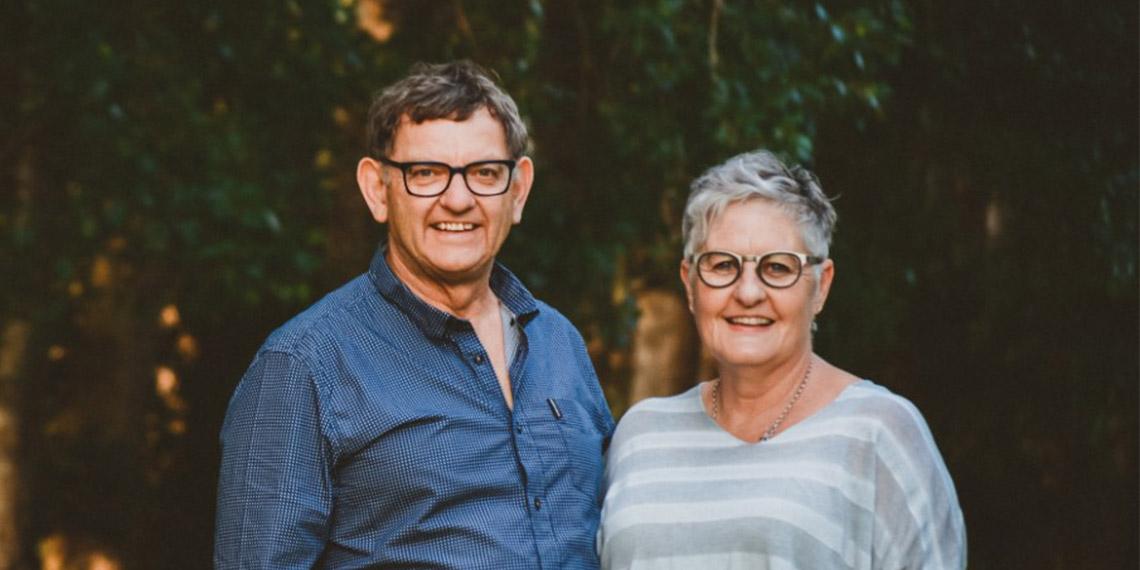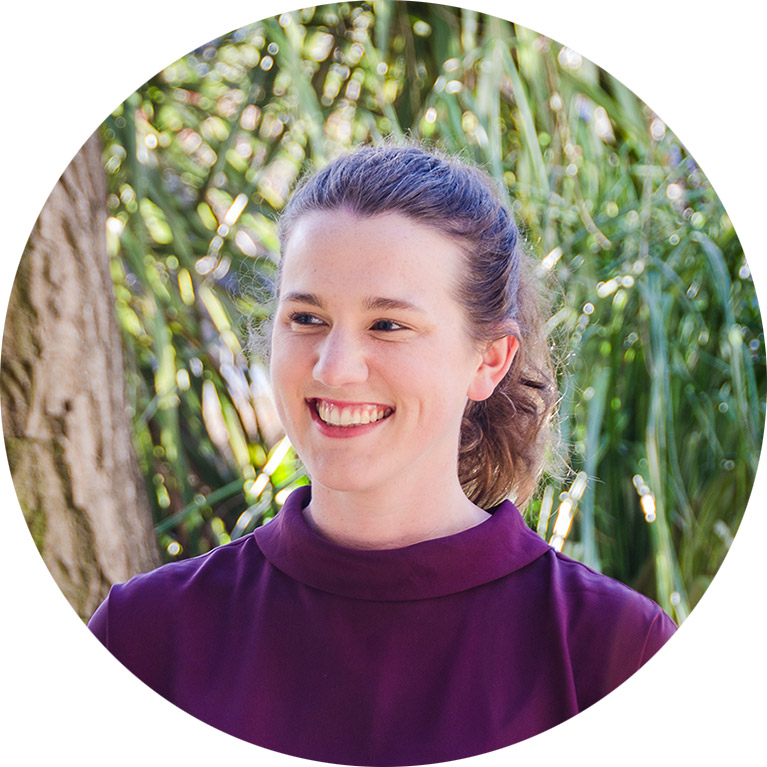You are here
Choosing Love—Faith in the Midst of Tragedy

The Guy family became widely known in New Zealand after their beloved son, husband and father was murdered on their family farm. Having endured overwhelming grief, further family tragedy and a trial which yielded no justice, Joanne Guy has found peace through reaching out to other broken people of the world.
On 8 July 2010, Joanne Guy’s son Scott was shot dead at the gate of their family’s farm in Feilding. His sudden death, under such cruel circumstances, shattered the Guy family, but there was more to come.
The following April, Joanne’s son-in-law, Ewen Macdonald, was charged with Scott’s murder. At the time, Macdonald was married to Joanne’s daughter, Anna; he had worked alongside Scott as a manager on the farm. The story was too juicy to resist for the mainstream media, and the subsequent trial captivated the nation. It placed the additional pressure of a giant media presence over a family bound by grief. At trial, Macdonald was sentenced to five years in prison for various charges (including vandalism, theft, arson and animal cruelty), but he was acquitted of the murder, which remains unresolved.
To compound the loss, her husband, Bryan, lost his father, just three months after Scott’s death, unable to cope with the grief. Then in May of 2011, her nephew Andy was murdered in Perth after he was pushed out of a second-storey window.
‘It just seemed to get worse and worse, and then we had thrown into that the huge media attention and public interest,’ Joanne recalls.
‘My heart felt like it was ripped out … you can’t feel God at that point.’
It would have been easy to lose hope, but in spite of all they had lost, Joanne and Bryan emerged with a stronger faith and the determination to draw every shred of good out of the unthinkable situation.
Overwhelming Grief
Reflecting on those first weeks and months, Joanne remembers how their family retreated into survival mode. They faced both business and family crises. Farming is not a career where you can press pause. With Scott gone and Macdonald in prison, Bryan had to take on a heavier workload. Meanwhile, the ripple effect on their close-knit family was devastating. ‘We had six fatherless grandchildren all of a sudden,’ Joanne says, ‘and they were all over the place, so we kind of became second parents to Anna’s children’.
Beyond the emotional turmoil, the physical effects of grieving were overwhelming. ‘I could listen to somebody for maybe ten minutes and then I couldn’t cope. The mind would go to mush,’ Joanne recalls. ‘We were told to eat bland food, because our stomachs were in knots and we felt sick when we ate anything.’
As someone who had always been a strong extrovert and thrived on company, Joanne could no longer cope with being around people. ‘I’d be out and then the tears would roll down my face, and this went on for months, and so I had to go home and be in the quiet, in the silence.’
It was here in the quiet where she eventually reconnected with her faith and found God in a deeper way. While neither Joanne nor Bryan had ever blamed God for the tragedy, their faith had drifted to the side as they battled through their grief and stress. Looking back, she can now see the traces of where God was working.
‘He was with us, even though we couldn’t feel it at times.’
‘I don’t think you could go through that without having a faith ... you need something more than positive thinking.’
Random Acts of Kindness
Despite how easy it was to give in to despair, Joanne and Bryan knew there was nothing to be gained from becoming angry. The situation was out of their hands, but they could control how they reacted and were determined to come through the other side and use the experience to help others.
‘We decided that we’d choose love. We weren’t going to go down the (path of) bitterness and hate, which was really easy to do.’
It was a process which could only begin with baby steps. At first, the grief was so exhausting that Joanne struggled to make it to the mailbox and back. Then she could walk a little further, embracing the fresh air and exercise. Each venture out of the front door gave her a new clue about what she needed to do to move forward.
‘Every time I’d go along for a little bit and then start crying a whole lot more … and think, “Okay, I need to go back for more counselling, or something like that”, and then I’d get over another hurdle.’
She spoke to Marg Schrader, the moderator of the Presbyterian Church at the time, who helped her to find a spiritual direction and faith amidst the hurt she was feeling. ‘That was so helpful. I don’t think I would have found it on my own.
‘I don’t think you could go through that without having a faith,’ Joanne affirms. ‘You need something more than positive thinking.’
One thing which made choosing the path of love much easier was the compassion they received from their neighbours and local community, including many New Zealanders they did not even know. Whether it was someone dropping off scones, the gift of a massage, or the local New World supermarket opening the store after hours especially for them so that they could shop in peace, each little act did its part to lift their burden.
The most appreciated gifts, even though they were often moved to tears, were hugs and being told that people were thinking about and praying for them. Joanne remembers how she used to look at people going through tough times and think, “better not upset them, I won’t say anything”. What she learned was that it hurt more when people crossed over the street when they saw them approaching, than when people came forward to say they were thinking of them.
‘The overwhelming kindness made such a difference. You can never underestimate the little things you do for others, because in grief there are no little things.’
Paying it Forward
Joanne and Bryan were encouraged by reading books and hearing stories of people who had gone through great loss before them—such as Holocaust survivors Victor Frankyl and Edith Eger, who had seen their entire families perish. ‘You think, “if they can do it, I can”,’ Joanne says. They decided that they too could serve the heartbroken families following in their footsteps, by passing on the lessons they were learning along the way in their own tragedy.
They now speak at grief seminars and are approached by many people struggling with loss, and Joanne has channelled her energy into writing. She has a blog called Make Lemonade and has also written two books for children. The first was called Snooty Stanley Plays a Prank, about treating others the way you want to be treated, while the second book, Stanley Meets Bobcat the Bully, explores the topic of bullying.
Joanne is a role model for the Duffy Books programme, and she visits schools all around the North Island. She is also currently working with Feilding Intermediate School to teach young girls about affirmations, self-esteem and focusing on what you can control.
‘He sees the big picture, and that’s where we put our trust and think, “Well, God, you know more than all the rest of us”.’
‘I get a chance to give them a hug, tell them they’re special, that even though bad things happen in your life, it’s not ruined,’ Joanne says.
‘You can find new purpose and meaning out of terrible things.’
In God We Trust
Having sold the farm in Feilding, Joanne now finds comfort in the garden of their new property. ‘It’s probably in nature I feel closest to God, and the quiet.’ However, through her family, school visits and her community, the people-person side of her nature has also played its part. She is grateful to everyone who reached out, and for the kindness which saw their family through not just the initial wave of grief, not just through the trial, but to this very day.
‘The prayers of people helped us; especially through the trial, we felt so held. Even this last week, people who we don’t know have said, “We prayed for your family and we prayed all the way through”,’ Joanne says. ‘The love and care from others meant that we made it.’
Family remains their top priority, more than ever before, and both Joanne and Bryan see a great responsibility in passing the love and care which has been shown to them forward, especially to their grandchildren.
‘It’s a huge burden those children have to carry, and so that’s where we—Bryan and I—feel our role is: to help the kids, to love them and encourage them.’
One of the many loose-ends that remains is the identity of Scott’s murderer. Macdonald has served his five-year sentence, and with every year, the likelihood of the offender being caught diminishes. Nevertheless, public interest in their case remains high—probably, Joanne believes, because it has never been solved.
She does think it would help to close that chapter for the family, but knows all too well that no name will ever absolve the grief or bring true justice.
In the case of her nephew’s death, Joanne says, ‘The gang member who pushed Andy out of the window, he was convicted of his murder and they (her sister’s family) didn’t feel any better than we did, it’s not going to bring them back.’
As the family try not to dwell on the lack of resolution, all they can do is have faith that God has it in control.
‘He sees the big picture, and that’s where we put our trust and think, “Well, God, you know more than all the rest of us”.’
Finding Hope
The hurt remains every day, and despite Joanne’s deep desire to see her family whole again, the loss of Scott has caused an indelible impact on the Guy family.
‘You don’t get over anything. I think that’s what a lot of people think, “Oh, you must be over it by now”, but no, not really,’ says Joanne, ‘but you can live with it and live alongside the pain.
‘I don’t think that will ever go, and I wouldn’t really want it to, because it’s that missing piece of your heart.’
While they have lost the ‘carefree’ feeling of life before Scott’s death, Joanne and Bryan do believe that they have been changed for the better through the experience. Moving forward, Joanne wants to keep going with the task that God has given her, by helping other hurt and grieving people, and continuing to put kindness back into the world.
‘I think every little bit counts … that’s what we’ve got to remember: that every act of kindness—no matter what we do—it’s like a seed and it grows and grows. That’s the hope I’m hanging onto.’
